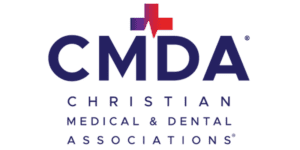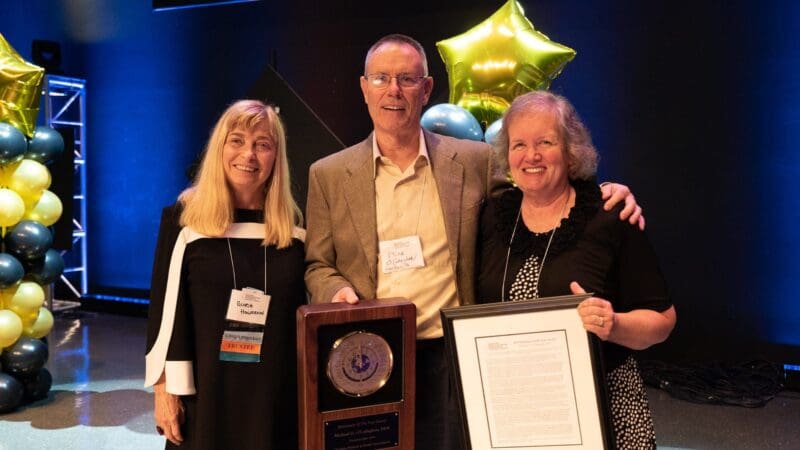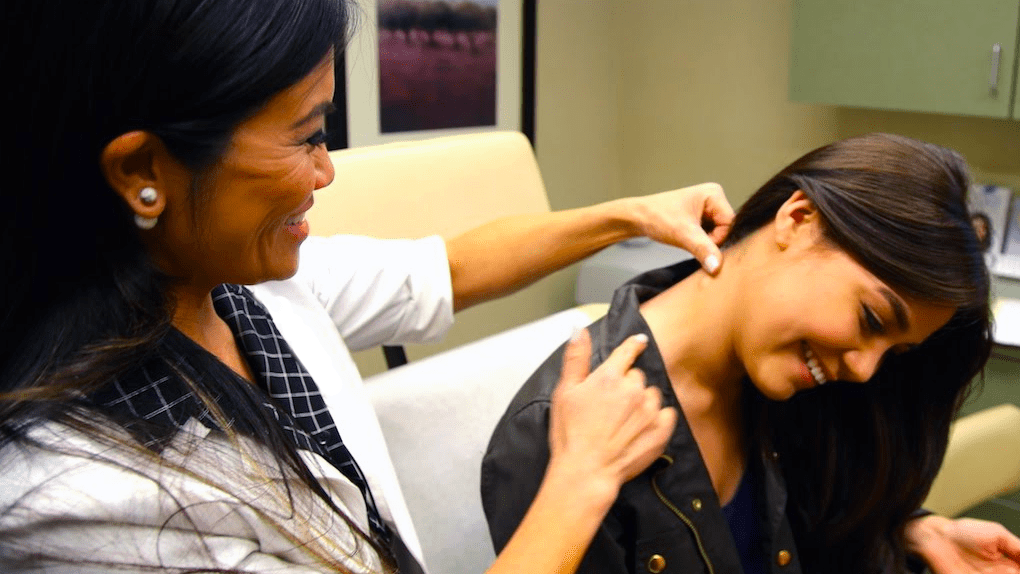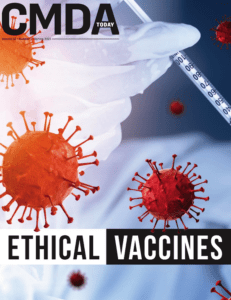With millions of COVID-19 vaccine doses already plunged into American arms and hundreds of million more doses on the way, can healthcare professionals confidently receive the vaccines themselves and also recommend them for patients? While responses to this question often involve important emotional factors that need to be addressed, this article focuses on three […]
Read More[…] Health and Human Services, 45 CFR Part 92 RIN 0945-AA02, p. 31435. See “Court strikes down harmful transgender mandate,” Becket Law, https://www.becketlaw.org/media/court-strikes-harmful-transgender-mandate/. Accessed August 17, 2018. Trusting Vaccines November 29, 2018 by Amy Givler, MD My patients have learned over the years that I will enthusiastically suggest they get a flu shot every fall. […]
Read More[…] time, it has been difficult to find points of optimism. The rapid development of vaccine candidates utilizing varied techniques remains encouraging. However, while expeditious availability of effective vaccines is a laudable goal, the physician-led organizations presenting this statement stress the need for assurances of safety, efficacy, and a full commitment to uncompromised ethical development. […]
Read More[…] restrictions and working from home. Freedom of movement about our communities and the nation has been limited by “stay-at-home orders” and mass travel restrictions. The availability of vaccines provides a sliver of hope but also raises many questions. Issues our society must address include prioritizing equitable vaccine distribution and the potential for coercive mandates […]
Read More[…] more powerful vehicle for self-representation, and for increased leverage in negotiations to improve patient care. Further elaboration is contained in the statement below. Download this Ethics Statement Vaccines and Immunizations ABSTRACT:Immunizations benefit the health of both individuals and the broader community. Individuals are helped because immunizations prevent infectious diseases. Fewer infectious diseases then circulate […]
Read More[…] enforce conscience freedom law in healthcare, focus on international women’s health Dec 16, 2020 Read News Release Christian Medical & Dental Associations joins group in support of vaccines and conscience protections Mar 2, 2021 Read News Release Christian Medical & Dental Associations joins group in support of the Born Alive Survivors Protection Act Apr […]
Read MoreThe current measles outbreak in Texas, the ascension of Robert F. Kennedy, Jr. to the post of Secretary of Health and Human Services and broad societal trends have prompted widespread debate over the wisdom and future of vaccinating children for preventable infectious diseases with meaningful, even major, morbidity and mortality.
Read More[…] Free Clinic in the Era of COVID Facing the Virus Overseas Lessons Learned in the COVID-19 Field Hospital Courage through the Crisis: Stories from the Frontlines ETHICAL VACCINES: Ready for a shot in the arm? Vaccines and Conscience Protection Physician Support for Ethical Vaccines At the Heart of the Crisis: Personal Reflections on COVID-19 […]
Read More[…] Free Clinic in the Era of COVID Facing the Virus Overseas Lessons Learned in the COVID-19 Field Hospital Courage through the Crisis: Stories from the Frontlines ETHICAL VACCINES: Ready for a shot in the arm? Vaccines and Conscience Protection Physician Support for Ethical Vaccines At the Heart of the Crisis: Personal Reflections on COVID-19 […]
Read More[…] Free Clinic in the Era of COVID Facing the Virus Overseas Lessons Learned in the COVID-19 Field Hospital Courage through the Crisis: Stories from the Frontlines ETHICAL VACCINES: Ready for a shot in the arm? Vaccines and Conscience Protection Physician Support for Ethical Vaccines At the Heart of the Crisis: Personal Reflections on COVID-19 […]
Read MoreWhen COVID-19 began sweeping around the globe in early 2020, career healthcare missionaries were faced with the option of staying in their countries of service to weather the storm or evacuating back to the United States before the borders closed. Without sufficient quantities of protective equipment for staff members, would rural mission hospitals be able to survive the pandemic? In countries where the medical infrastructure is limited at best, would there be enough resources? What about food and other supplies to help to meet the day-to-day needs if the airports closed?
Read MoreAs representatives of over 30,000 physicians who practice according to the Hippocratic Oath, the American Association of Pro-Life Obstetricians and Gynecologists (AAPLOG), the American College of Pediatricians, Christian Medical & Dental Associations, the Catholic Medical Association, and the Association of American Physicians & Surgeons decry the call to continue elective abortion during the COVID-19 pandemic made by the American College of Obstetricians and Gynecologists (ACOG) and others which falsely characterize elective abortion as essential healthcare.
Read MoreAs organizations representing over 25,000 medical professionals, we would like to correct the errors and assumptions of the recently released joint statement from the American College of Obstetricians and Gynecologists (ACOG) and Physicians for Reproductive Health (PRH).
Read MoreMember Awards One of the highlights each year during the CMDA National Convention is the presentation of the Servant of Christ, Educator, Missionary and President’s Heritage Awards. You are invited to nominate CMDA colleagues for three of these four awards, while the Missionary of the Year Award is selected by a commission. A one-page summary of…
Read MoreThe Dermatology Section of the Christian Medical Association strives to enable Christian dermatologists to work together for deeper mutual support and understanding.
Read More[…] excited to release the new CMDA Today, formerly Today’s Christian Doctor. In this edition of the magazine, you can learn more about the ethics of the COVID-19 vaccines. Plus, get a firsthand look at the recent CMDA member survey, earn continuing education credit on the topic of human trafficking, learn how to start a […]
Read MoreA 2023 report by Pew Research Center reported that 13 percent of Americans reported attending in-person worship services in the summer of 2020. I was not one of them. Until we had a vaccine, I did not want people gathering in groups.
Read MoreAs I write this, I am on Day 8 of a self-imposed quarantine for COVID-19. Dr. H and I managed to come down with it at almost the same time; so have several of our family members. No one seems to know just who gave it to whom, but at this point it doesn’t much matter. All of our happily vaccinated and boostered selves are doing better now, by God’s grace, and we are very thankful about it.
Read More[…] burden of the pandemic, conversations have appropriately turned to burnout among healthcare professionals. Most dialogues point to external systems, e.g., the shrinking workforce, limited supplies and political contentions over vaccines. While these forces exert significant influence, and indeed pose a crisis in many parts of the U.S., deeper and more personal dynamics are at play.
Read MoreI remember early on hearing in the news about a virus causing problems in China. It wasn’t long before we heard news of it spreading. As it began to spread, we were busy planning for March, our busiest month of mission trips. We send the most teams in the month of March, which gives mission opportunities for various schools during the annual spring break period. We sent our first two teams out before countries began closing their borders. While these two teams were still out of the country, we began cancelling our remaining trips. First it was for the month, then it became two and on through the summer. Before we knew it, we had cancelled every single remaining mission trip scheduled throughout the remainder of 2020—all as a result of COVID-19.
Read MoreWhen 2020 started, I had a plan. A plan to follow God’s leading to serve on a mission trip in Southeast Cambodia. Like everyone else, those plans were completely changed when the pandemic hit. But God.
Read MoreMy husband and I had just moved from Michigan to Texas for my first year of medical school at the University Health Science Center San Antonio. We walked up to the door of a house we had never visited, hand-in-hand wondering what the evening ahead would hold, with unfamiliar people, in this unfamiliar part of the country. As we arrived at the front door, we could hear the sounds of conversation mixed with laughter inside, along with the delicious aroma of cooking pizza tantalizing our taste buds. Another couple our age greeted us warmly while handing us an apron, sending us toward a buzzing kitchen to begin creating our “couple pizza” for the pizza bake-off contest! Wow! It was a Texas size welcome.
Read More






